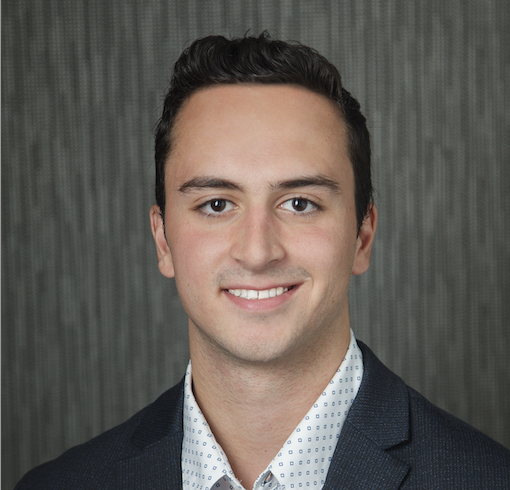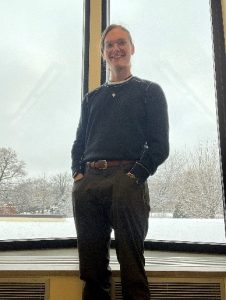Summer is a wonderful time to relax and recharge, but it’s also a great opportunity to work on personal projects that can enhance your career prospects and personal growth. Whether you’re a student, a recent graduate, or a working professional, there are many ways to use your summer break to work on personal projects that can help you achieve your goals. Here are some ideas to help you get started:
Update Your Resume and LinkedIn Profile:
Updating your resume and LinkedIn profile is an essential project that can have a significant impact on your career growth and success. These two tools are often the first impression potential employers or professional connections have of you, so it’s essential to ensure they accurately reflect your skills, experience, and achievements.
To start, review your current resume and LinkedIn profile and make any necessary updates. This includes adding new experiences, skills, certifications, and job responsibilities. Make sure your headline, summary, and job descriptions accurately reflect your unique value proposition and what sets you apart from others in your field.
It’s also important to tailor your resume and LinkedIn profile to the specific job or industry you’re interested in. Use relevant keywords and highlight the skills and experiences that align with the job description. This can increase your chances of being noticed by recruiters or hiring managers and increase your likelihood of landing an interview.
The career center’s page on Lawrence’s website is an excellent resource for learning how to write effective resumes and build a strong LinkedIn profile. We offer samples, templates, and guidance on how to highlight your strengths and make a lasting impression on potential employers or connections.
Build Your Personal Website:
Building a personal website is a valuable asset in today’s digital world, regardless of your field of study or profession. It’s a powerful tool that allows you to showcase your skills, experience, and accomplishments to the world. With the rise of online job applications and remote work, having a professional-looking website can help you stand out and make a lasting impression on potential clients, customers, or employers.
Creating a personal website has become easier than ever before, thanks to website builders like Wix, Squarespace, and WordPress. These platforms offer user-friendly interfaces and customizable templates, making it easy to design a website that suits your unique needs and style.
Your personal website should include relevant information such as your resume, portfolio, projects, and any other achievements that demonstrate your expertise and value. It’s an opportunity to showcase your work and highlight your unique selling points to potential clients, customers, or employers. Including a blog, section can also help you establish your authority in your field and attract a wider audience.
In addition to showcasing your skills and experience, a personal website can also help you connect with like-minded professionals in your field. You can use your website to create a network of contacts and share your work with others. This can lead to new opportunities and collaborations that can help you grow professionally.
While building a personal website may not be a common practice in STEM fields, it certainly has its benefits. It offers a platform to showcase your work, connect with others, and establish your authority in your field. It can also demonstrate your proficiency in web development, design, and communication skills, which are highly valued in today’s job market.
Write Research Papers on Topics of Interest:
In today’s fast-paced world, staying up-to-date with the latest academic trends and honing one’s skills has become more critical than ever but staying engaged in academics is a vital aspect of your professional and personal growth. One effective way to stay engaged and work on your own time during the summer is to write research papers on topics of interest.
Writing a research paper is an excellent way to explore a topic in-depth, gain new skills, and showcase your abilities. The best part is that you don’t need any prior research experience or access to data to get started. A review paper can be an excellent place to begin, as it enables you to synthesize and evaluate existing research on a given topic.
To get started, you can identify a topic that piques your interest or that you’ve always wanted to explore. Then, use online databases like the Library, JSTOR, or Google Scholar to find scholarly articles and research papers related to your subject. Once you’ve gathered sufficient information, start synthesizing it into a unique paper that adds value to the existing conversation on the topic.
While writing your research paper, you’ll develop critical thinking, research methodology, writing, and communication skills. You’ll learn to analyze and synthesize complex information and gain valuable insights into the topic you’re exploring. This newfound knowledge and skill set will prove beneficial in your future academic and professional endeavors.
In addition to the personal and professional growth opportunities that come with writing a research paper, it also offers a chance to contribute to the academic community by adding new ideas to the existing discourse. Your paper can open up new avenues of exploration for future researchers, sparking new debates and ideas.
Conduct your passion project:
If you’ve ever had an idea for a personal project or passion project, this summer is the perfect time to turn that idea into a reality. Whether it’s becoming an advocate for a cause you’re passionate about or creating a project to empower a specific group, pursuing your interests can not only bring personal fulfillment but also have a positive impact on your community.
Lawrence University has a history of supporting students in pursuing their personal projects, and many Lawrentians have already turned their ideas into successful ventures. For instance, some students have launched initiatives to promote sustainability, while others have developed programs to support mental health and wellness.
In addition to the support of the Lawrence community, the Career Centre offers Experiential Funding to help students finance their personal projects. These funds can be used to cover project expenses and support your research, development, and implementation.
When choosing a project, consider selecting one that is aligned with your field of study or intended career path. This can help you gain valuable experience and skills that will be relevant to your future career goals. Furthermore, pursuing a project can help you build your resume and make you a more competitive candidate in the job market.


